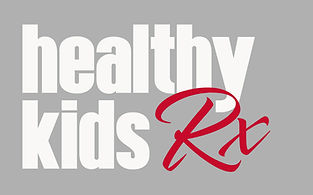8 Ways Exercise Can Help Kids Do Better in School
- crossfit7220
- May 30, 2019
- 2 min read

1. Combination of Motor Skills and Aerobic Fitness Improves Academics
In June of 2014, researchers from the University of Madrid reported that motor skills gained through physical activity may be of greater importance than the cardiorespiratory benefits of aerobic fitness.
The Spanish study,”Independent and Combined Influence of the Components of Physical Fitness on Academic Performance in Youth,” was published in the Journal of Pediatrics.
2. Exercise Creates More Efficient White Matter and Brain Connectivity
An August 2014 study from University of Illinois at Urbana-Champaign found that children who are more aerobically fit have more fibrous and compact white-matter tracts in the brain than their peers who are less fit.
The study, "Aerobic fitness is Associated with Greater White Matter Integrity in Children," was published in the journal Frontiers in Human Neuroscience.
3. Exercise Before School Improves Focus and Reduces ADHD Symptoms
In a September 2014 study, researchers from Michigan State University and University of Vermont found that offering daily before-school, aerobic activities to younger at-risk children could help in reducing the symptoms of ADHD in the classroom and at home.
article continues after advertisement
The study, "A Randomized Trial Examining the Effects of Aerobic Physical Activity on Attention-Deficit/Hyperactivity Disorder Symptoms in Young Children," was published in the Journal of Abnormal Child Psychology.
4. Physical Activity Should Remain Playful For Best Results
In a September 2014 study, researchers at the University of Montreal identified four dimensions of play particularly important for children as part of any physical activity. Play makes exercise seem like fun which makes it more enjoyable.
The study from University of Montreal, "Problematizing “Play-for-Health” Discourses Through Children’s Photo-Elicited Narratives," was published in the journal Qualitative Health Research.
5. Boys Can Especially Benefit from Regular Physical Activity
A September 2014 study from University of Finland found that physically active school transportation related to academic skills and may be beneficial for the development of reading skills in boys.
The study, "Associations of Physical Activity and Sedentary Behavior with Academic Skills – A Follow-Up Study among Primary School Children," was published in PLOS ONE.
6. Taking "Brain Breaks" During Class Improves Classroom Performance
In September 2014, the abstract of a study,"Brain Breaks: Physical Activity in the Classroom for Elementary School Children," was published in the Journal of Nutrition Education and Behavior.
article continues after advertisement
Oregon law will mandate that by 2017 elementary schools have 30 minutes a day of physical education classes, in addition to recess periods. A survey conducted by the Healthy Youth Program found that 92 percent of Oregon public elementary schools currently do not meet this standard. The CDC confirms that this is a nationwide deficit.
7. After-School Exercise Groups Can Improve Cognitive Function
In September 2014, researchers at the University of Illinois at Urbana-Champaign released findings that children who participate in after-school exercise groups have improved cognitive function.
The study, "Effects of the FITKids Randomized Controlled Trial on Executive Control and Brain Function," is available from the University of Illinois News Bureau.
8. Resistance Training and Lifting Weights Can Improve Memory
In October 2014, researchers at the Georgia Institute of Technology found that an intense bout of resistance training for as little as 20 minutes can enhance episodic memory, also known as long-term memory in healthy young adults.
The study, "A Single Bout of Resistance Exercise can Enhance Episodic Memory Performance, was published in the journal Acta Psychologica.
Read the full article HERE:




Comments